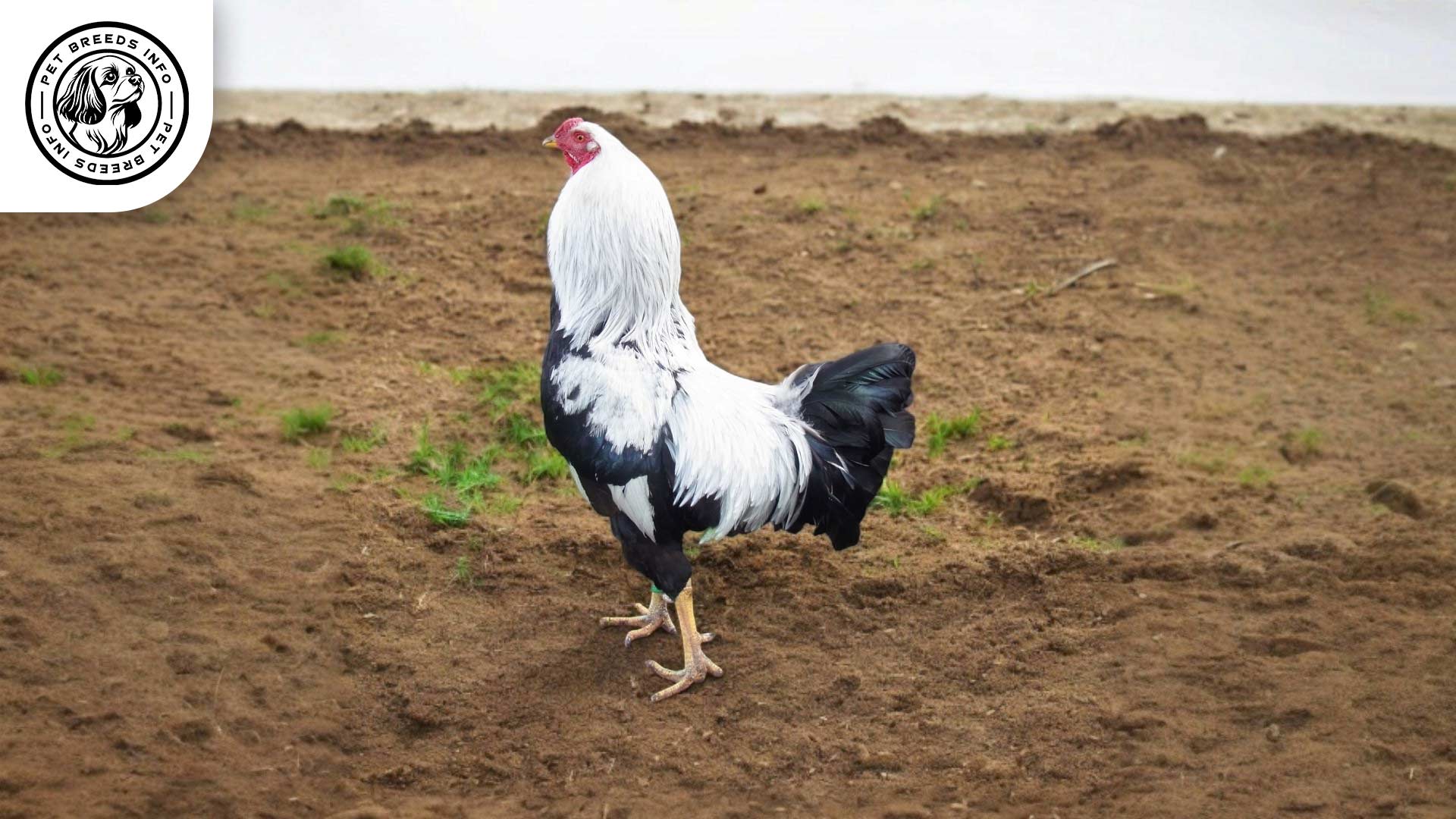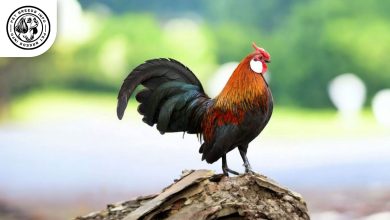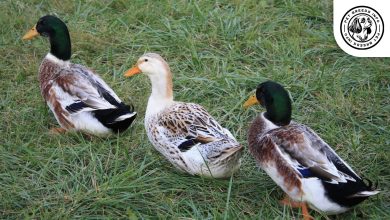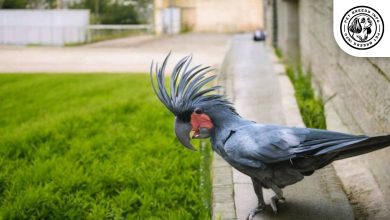Kraienkoeppe Chicken Breed: Personality, Lifespan, Food & Care
General Introduction of the Breed
The Kraienkoeppe Chicken, also known as Kraienköppe in German, is a hardy and productive breed originating from the Netherlands and Germany. Developed in the late 19th century, it was initially bred for both egg production and cockfighting. Over time, it became popular among poultry enthusiasts for its resilience, strong foraging ability, and excellent laying capabilities.
Table of Contents
| Common Name | Kraienkoeppe Chicken |
| Scientific Name | Gallus gallus domesticus |
| Origin | Netherlands and Germany |
| Size | Medium (Roosters: 2.5–3 kg, Hens: 1.8–2.3 kg) |
| Lifespan | 6–10 years |
| Colors | Silver, Black, some glossy feather varieties |
| Talking Ability | Low (typical clucking and rooster crowing) |
| Noise Level | Moderate |
| Social Behavior | Intelligent, active, sociable, mild dominance |
Physical Characteristics
Kraienkoeppe Chickens are medium-sized birds with a muscular yet sleek appearance. Roosters typically weigh around 5.5 to 6.5 pounds (2.5 to 3 kg), while hens weigh approximately 4 to 5 pounds (1.8 to 2.3 kg).
They have tight-fitting feathers that give them a compact look. Their plumage comes in a variety of colors, with Silver and Black being the most common. The feathers often have a glossy sheen.
The breed features bright, expressive eyes that range from deep red to brown. They have a well-proportioned head with a small, pea-shaped comb.
The ears are small and almond-shaped, while their tail is full and slightly raised, adding to their elegant stature. Their strong legs and feet make them excellent foragers.
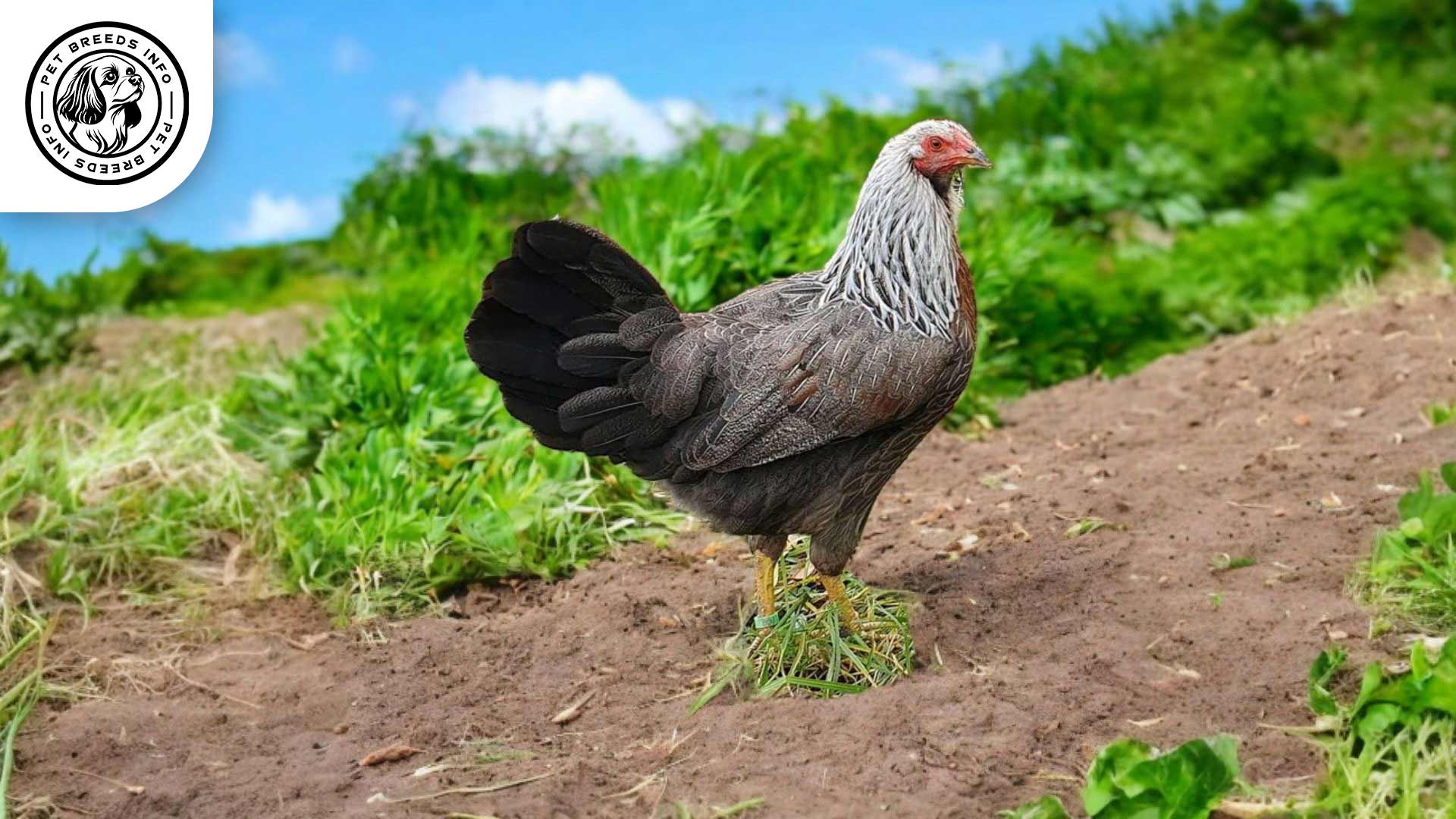
Personality and Temperament
Kraienkoeppe Chickens are known for their high intelligence and strong survival instincts. They are quick learners and adapt well to different environments.
They display a moderate to high energy level and enjoy free-ranging. They are not overly flighty but are alert and active.
These birds form a strong bond with attentive owners and can become quite friendly with proper handling.
Kraienkoeppes are social birds that do well in flocks. They get along well with humans, including children, especially when raised in a nurturing environment.
Though they were originally bred for cockfighting, modern strains have a reduced aggressive tendency but may still display dominance, particularly among roosters.
They can be sensitive to environmental changes but generally adapt well to different climates.
Care and Maintenance Requirements
Kraienkoeppe Chickens thrive when given adequate space to roam and forage. They require a backyard or a free-ranging environment to stay active and healthy.
They are best suited for farms or homes with ample outdoor space rather than being confined to a small coop.
The breed has low grooming requirements due to its tight feathering. Occasional dust baths help maintain feather health. Regular checking for parasites is recommended.
Kraienkoeppes are hardy birds that can tolerate cold weather well but should be protected from extreme heat by offering shade and water.
Read More: Personata Lovebird
Routine care includes providing clean water, trimming overgrown nails, and checking for signs of disease or parasites.
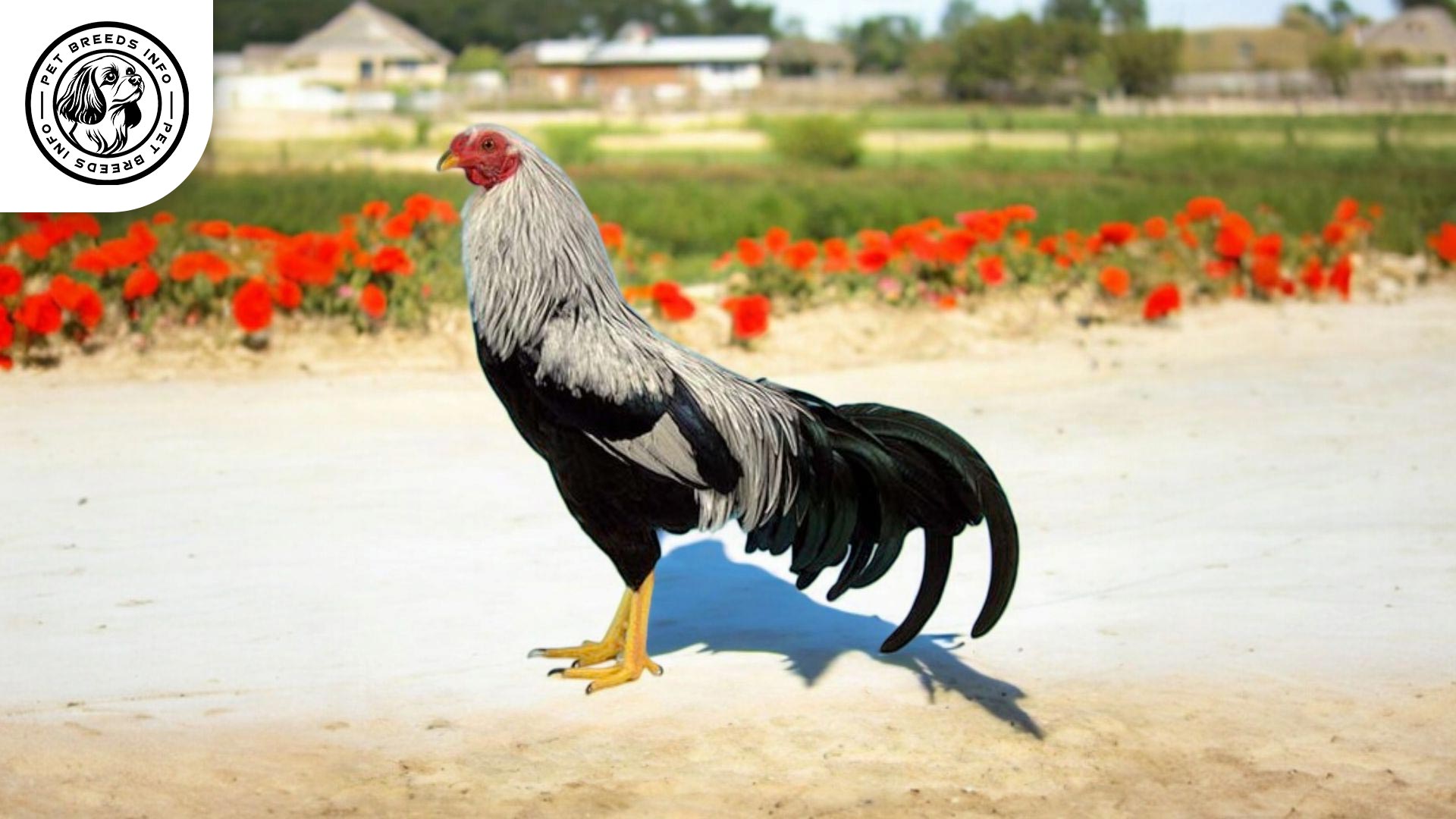
Diet and Nutrition
This breed benefits from a high-quality poultry feed supplemented with fresh greens, grains, and occasional protein sources like mealworms.
They require a well-balanced diet rich in calcium and protein to support egg production.
Avoid feeding them processed foods, toxic plants, chocolate, or excessive salty and sugary items.
Adult birds should be fed twice a day, with protein supplements during molting seasons.
Health and Common Medical Issues
Kraienkoeppe Chickens are generally hardy but can be susceptible to common poultry diseases such as respiratory infections, parasites, and bumblefoot.
They are particularly vulnerable to mite or lice infestations, so routine checks are necessary.
With proper care, Kraienkoeppes have an average lifespan of 6 to 10 years.
Regular vaccinations, a clean coop, and balanced nutrition help prevent common health issues.
Read More: Silver Bantam Duck
Training and Behavior Management
These chickens are intelligent and can be trained to recognize their caretakers and respond to food calls.
Early socialization helps in reducing skittish behavior. Handling them from a young age makes them more friendly.
Positive reinforcement, such as treats and gentle interaction, is the best training method.
Interaction with Other Animals and Humans
Kraienkoeppe Chickens interact well with children when raised in a friendly and calm setting.
They are generally sociable with other flock members but may establish a pecking order. Roosters can sometimes be territorial.
This breed is suitable for both families and individual chicken keepers who can provide space and proper care.
They enjoy socializing but also maintain a level of independence compared to more docile breeds.
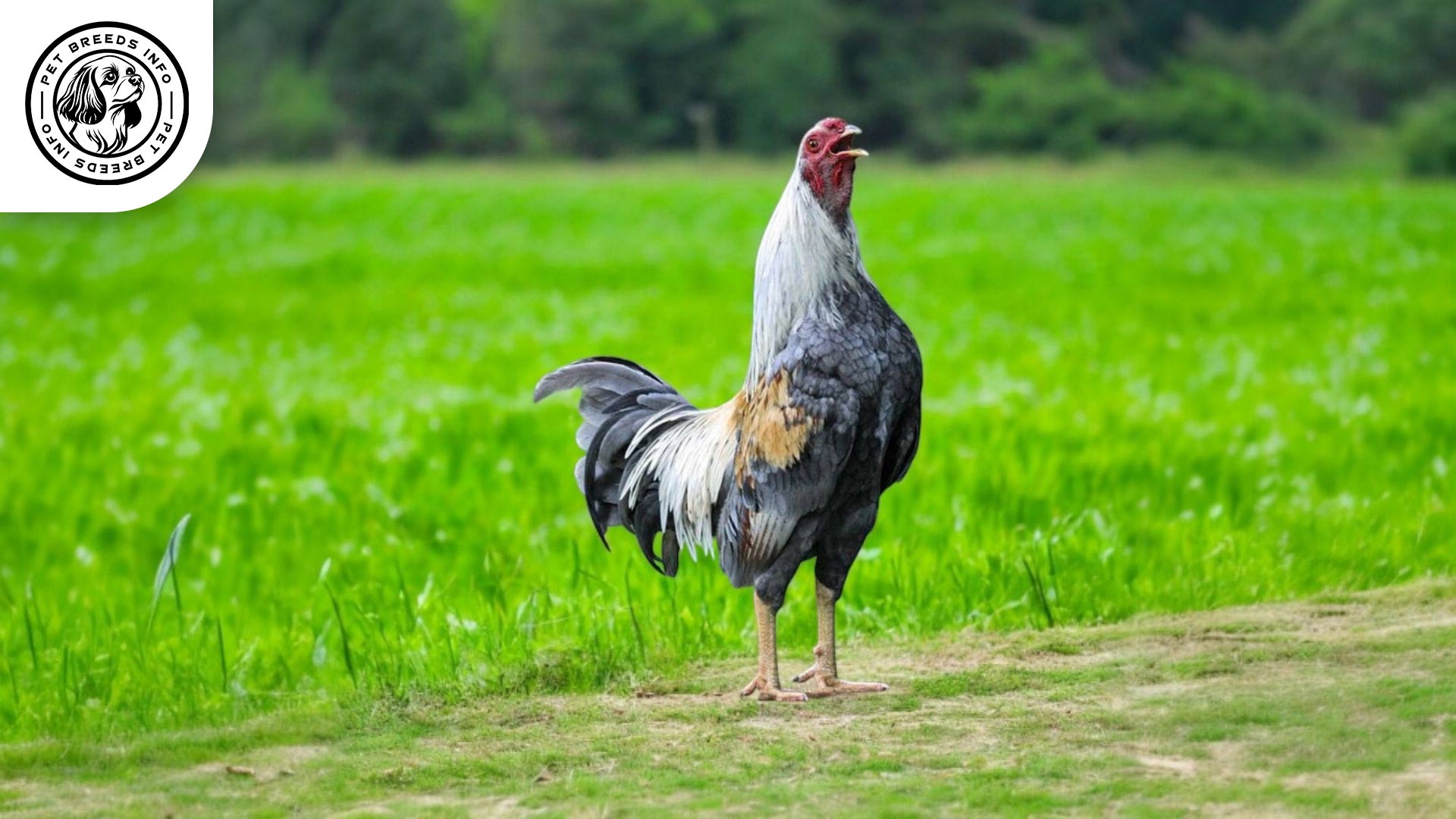
Price and Availability
The cost of a Kraienkoeppe Chicken varies but typically ranges between $10 and $30 per chick, depending on age and quality.
It’s important to source from reputable breeders or poultry farms to ensure a healthy bird.
Kraienkoeppes are not as commonly found in commercial hatcheries but can be obtained from specialized breeders who focus on preserving the breed.
Read More: Marsh Daisy Chicken
Conclusion and Final Thoughts
Kraienkoeppe Chickens are an excellent choice for backyard poultry keepers who want a hardy, intelligent, and productive breed.
They do best in a free-range environment and thrive when given enough space to forage.
Potential owners should be prepared for their active temperament and ensure they receive proper socialization.
With the right care, Kraienkoeppes can be rewarding birds that provide both beauty and utility in a flock.
FAQ
Are Kraienkoeppe Chickens good for beginners?
Yes, with proper space and attention, they’re intelligent and adaptable, making them suitable for dedicated beginners.
How well do they lay eggs?
They are reliable layers and were originally bred for egg production, offering consistent output with the right diet.
Can Kraienkoeppes be kept in small coops?
Not ideally. They need space to forage and roam, so they are best suited to backyards or farms with open areas.
Are they aggressive because of their cockfighting origins?
Modern strains are much calmer, though roosters may still show dominance. Socialization reduces any aggressive tendencies.
How do I keep them healthy?
Provide clean housing, check for mites/lice, offer a balanced diet, and maintain routine vaccinations and vet care.
